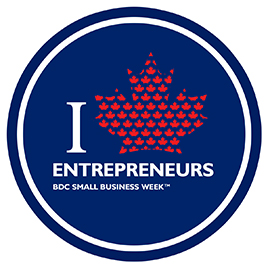Small business week Canada takes place every year to create a place to network, share ideas and learn. This year the theme was “back to basics- re-energizing your business.” I found this article particularly interesting as when I first came to Sauder I was surprised by the amount of attention they gave to networking even in our first year. However, over time I have realized that this is the backbone to the business industry: it’s more about who you know, how you can influence them, and how you can motivate them if you want to be an entrepreneur or in a managerial position. Three out of the 5 “top do’s” we to do with engagement with people and building strong and lasting relationships. (“The 5 Do’s and 5 Don’ts of Successful Businesses.”) This reminded me of the Sauder Alumni class when Nolan Watson said that most entrepreneurs are “day-time extroverts” meaning they are out going during the day and then after work they stick to themselves more. It is interesting to understand just how important connections are throughout your business career.
Most of the “top don’ts” were based on understanding your market and minimizing risk by diversifying. This is not surprising however it taps into a lot of what we have done in class already – the importance of management accounting, market research etc. Reading this article has in a way summed up a lot of what we have learned in COMM 101 so far this term, putting into perspective the most important areas of business and helping me understand what it will take to become a successful entrepreneur like many of the Sauder graduates.
“What Business Do’s and Don’ts Have Impacted Your Success? BDC Celebrates Small Business Week.” What Business Do’s and Don’ts Have Impacted Your Success? BDC Celebrates Small Business Week. Web. 10 Nov. 2014.
“The 5 Do’s and 5 Don’ts of Successful Businesses.” BDC. Web. 10 Nov. 2014. <http://www.bdc.ca/EN/about/sme_research/Pages/five-dos-and-five-donts.aspx?ref=shorturl-dosanddonts>.





